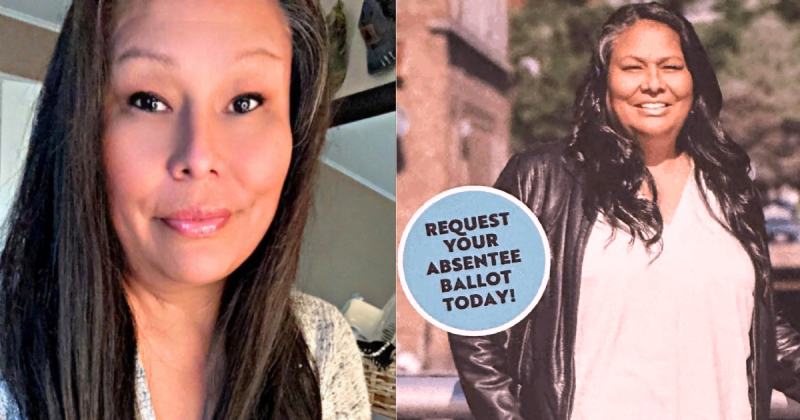Angela Walker’s election to the Bangor City Council Tuesday has sparked national backlash and criticism due to her criminal past.
She was one of three candidates elected from a nine-person field.
Walker, 43, and her brother Benjamin Humphrey were convicted in 2003 for the 2002 death of Canadian tourist Derek Rogers in Old Orchard Beach.
Authorities said the confrontation began after Rogers allegedly used a racial slur against Walker, leaving him severely beaten and asphyxiated with sand, according to The Maine Wire, per The Gateway Pundit.
Walker also pleaded guilty to perjury during the investigation and served her sentence from 2003 to 2013.
Despite her criminal history, Bangor’s municipal code does not bar candidates from running for office based on prior convictions, allowing Walker to pursue her candidacy.
Reflecting on her past, Walker said, “That’s my past. I don’t live there anymore and I’m a different person.”
She emphasized that her focus is on contributing to her community and improving conditions for its most vulnerable residents, WGME reports.
Walker joins Daniel Carson and Susan Faloon as the newly elected councilors.
She received 2,231 votes, compared with 2,512 for Carson and 3,951 for Faloon. She is unaffiliated with any political party.
Walker has lived in Bangor for a total of 13 years, returning five years ago after a period away.
According to her LinkedIn profile, she serves as Peer Services Coordinator at the Bangor Area Recovery Network, a position she has held since August 2024, overseeing programs that provide recovery coaching, peer support and advocacy for people navigating addiction and mental health challenges.
She also coordinates the Recovery Justice Program at the organization, integrating rehabilitation services with community reintegration efforts since February 2023.
Additionally, Walker volunteers as a Certified Intentional Peer Support Specialist at the Sanford Peer Center, supporting individuals in recovery since August 2023.
Her campaign focused on supporting vulnerable populations, including the homeless and those struggling with addiction.
She pledged to engage directly with these communities and to work on improving public transportation, public spaces and public safety.
Walker said her personal experience with homelessness and addiction recovery provides her a unique perspective in addressing the challenges faced by residents and in shaping responsive local policies.
Walker’s election has drawn national attention, with conservative outlets highlighting her criminal history and questioning her suitability for public office.
Critics argue that voters took a risk electing someone with a serious criminal record to a position of authority, raising concerns about judgment and public safety.
City officials and local residents are closely examining how Walker’s past convictions might affect her ability to serve effectively.
While she has emphasized her work in addiction recovery and engagement with vulnerable populations, opponents maintain that such experience does not outweigh the severity of her prior crimes.
Supporters, however, point to her rehabilitation, advocacy and ongoing commitment to recovery-focused programs, arguing that her election reflects the community’s willingness to embrace second chances and redemption.
The outcome highlights ongoing debates over criminal justice reform, voter discretion and the qualifications needed for public office, particularly in smaller cities like Bangor, where local engagement and representation are critical.
Residents and observers will be watching closely to see how her tenure influences public policy, safety and community outreach.

